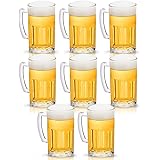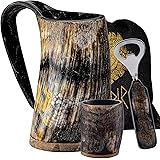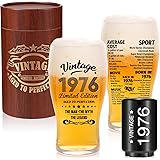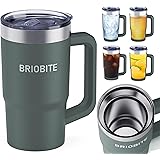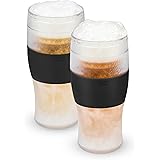
Interested in learning how to make your own beer at home?
You’re in luck! We have easy-to-follow instructions that will show you everything you need to know. Plus, it’s a fun and rewarding process that can save you money in the long run.
Once you start brewing your own beer, you won’t want to stop. It’s a really satisfying experience and the end result is always delicious. Not to mention, you can customise your recipes however you like – so there are endless possibilities.
Buying beer can get expensive, especially if you like to drink often.
Not only is it expensive to buy beer, but it’s also bad for your wallet to buy alcohol at restaurants or bars.
Brewing your own beer is a great way to save money while enjoying your favourite drinks. Plus, you can customise the flavour and strength of your beers to match your own personal preferences.
Read on and get started on making your very own batch of beer with our list of brewing ingredients.
Homebrewing is an empowering experience that lets you create your very own delicious beer. You can even tweak the recipe to suit what flavours speak best through personal taste, which gives endless potential!
If you are new to home brewing, you may be wondering where to start. This article will provide you with some basic information to get started so that you can make the best beer possible. Keep in mind that everyone’s brewing process will be a little different, so don’t be afraid to experiment and find what works best for you. With these tips, you’ll be on your way to becoming a home brewing expert in no time!
What ingredients are in homemade beer?
The four main ingredients in making beer are malt, hops, yeast and water. If you want to get fancy with your brews then familiarise yourself with the different types of adjuncts that can be added like chocolate or coffee for a sweeter taste.
Beer Ingredients list
Water

Despite its simple appearance, beer is actually a very complex beverage. Beer’s primary ingredients are water and grains which create the flavour you experience when drinking it, but these same components also determine what kind of body your finished product will have as well! For example- if spring or mountain waters were used in production then those particular types could be expected to give off unique flavours due to their high mineral content (which some insist provides better taste).In the early days of Guinness, it was brewed with canal water from The Grand Canal in Dublin. Today though, Guinness insists that it uses no river water, only pure spring water from the nearby Wicklow mountains.
Hops

Hops are a key ingredient in beer because they add bitterness to counterbalance the sweetness coming from malts. Heralded as one of humanity’s oldest beverages, hops have been used for centuries during the production process which made them popular among consumers who craved something with more taste or “aroma.” The application rate ranges anywhere between 10-20IBUs (International Bitterness Units scale) but today it can be lower than 5 IBU depending on what style you’re drinking (i.e., India pale ale).
Malt

Malt is the key to making great beer. The type of malt you use will depend largely on what grains were grown in your area, but many breweries opt for barley because it has higher amylase content than other varieties and helps break down those starches into sugars during fermentation!
Yeast

The process of fermentation starts with yeast. Fermentation occurs when glucose is converted into ethanol and carbon dioxide through the action of microorganisms such as bacteria or fungi, which can then be captured by bubbles in an alcoholic beverage to produce flavour profiles associated with different styles like lambics (which have rich acidity) sweetness from sugar syrup added during bottling season or kombuchas(sour).
Conclusion
Brewing your own beer can be a fun, rewarding experience. Not only will you get to enjoy the fruits of your labour, but you’ll also have something unique to share with friends and family. If you’re just starting out, these tips should help make the process a little easier. Be sure to experiment and find what methods work best for you – there is no one “right” way to brew beer. And who knows? You may even decide to take things up a notch and start brewing your own craft beer!
